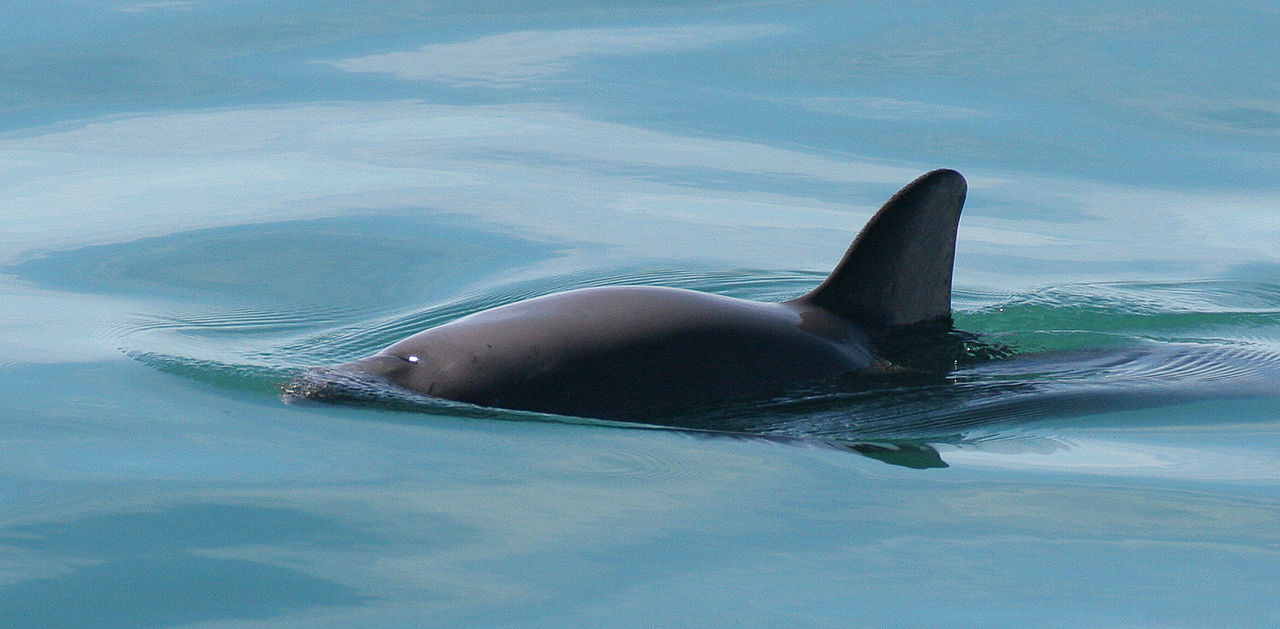The vaquita is a beastie with some remarkable claims to fame:
- It’s one of the two smallest cetaceans in the world, just managing to nudge about 1.5metres long on a good day
- Its name means ‘little cow’, though it is also called the ‘desert porpoise’ as it lives near arid Baja California. They are the only porpoises found in warm waters.
- It was only described by science in 1958.
- It has a tiny geographic range, at about 4,000 km2 (about the size of Cornwall) it’s amongst the smallest of any marine mammal.
- It’s possibly one of the cutest sea mammals around (with dark eye patches giving it apassable panda look), although very few people have ever gotten a good look at a live vaquita…
And it’s likely to become extinct in just a few years.
There are less than a hundred vaquitas left on the planet, and we humans are reducing that number by a staggering 17% each year!
The truth is – we should be able to save the vaquita. We know where it lives, and we know that we humans are its biggest threat. Vaquitas are caught and killed as bycatch in a fishery targeting fish called totoaba. The swim bladders of the totoaba are prized as a delicacy for soup in China so there’s lucrative financial incentive for illicit fishing. It just so happens that totoaba are about the same size as a vaquita, which is really bad news for the porpoises when indiscriminate gillnets are used that catch them, too!
By stopping fishing entirely, or moving fully to fishing methods that can’t catch porpoises ‘by accident’, and protecting the vaquita’s habitat, this could and should be one of the easiest marine animals to conserve. Many of the recognisable marine critters at greatest risk of extinction, such as hammerhead sharks, whale sharks, sea turtles & manta rays have vast ranges, and are much trickier to protect fully from human impacts. That doesn’t mean we shouldn’t try, of course, but it does surely make it all the more ridiculous if we can’t get our act together to save the vaquita.
In fact, in 2005 a marine protected area was designated specifically to protect this tiny porpoise, covering half of its range. But the protected area is surrounded by heavily-fished areas, and ongoing fishing both legal and illegal is killing more and more porpoises.
We owe it to the vaquitas to try to save them.
This generation has already seen the extinction of the Baiji, a Chinese river dolphin. Other species are declining fast thanks to humanity, with ship strikes, pollution, habitat destruction, and irresponsible fishing taking an increasingly heavy toll. The vaquita is top of the list, but the future is also bleak for the Maui’s dolphin, the North Atlantic right whale, the Ganges river dolphin, the Western Pacific gray whale, the Irrawaddy dolphin and many more. Then there are the ice whales – narwhals, beluga & bowheads – whose habitat is being destroyed and plundered as it melts away.




